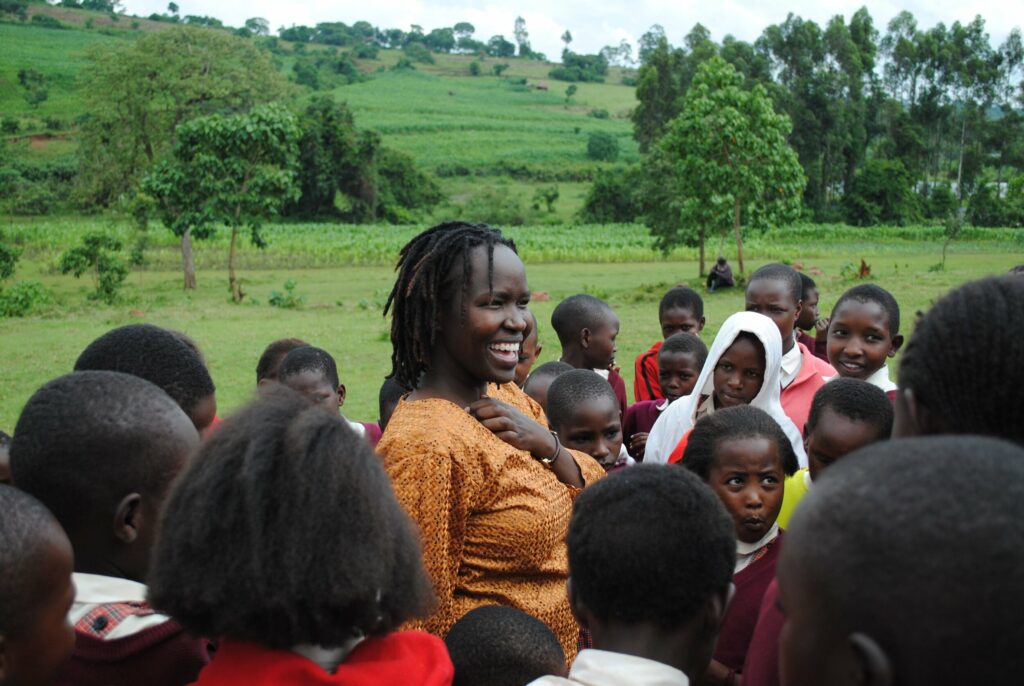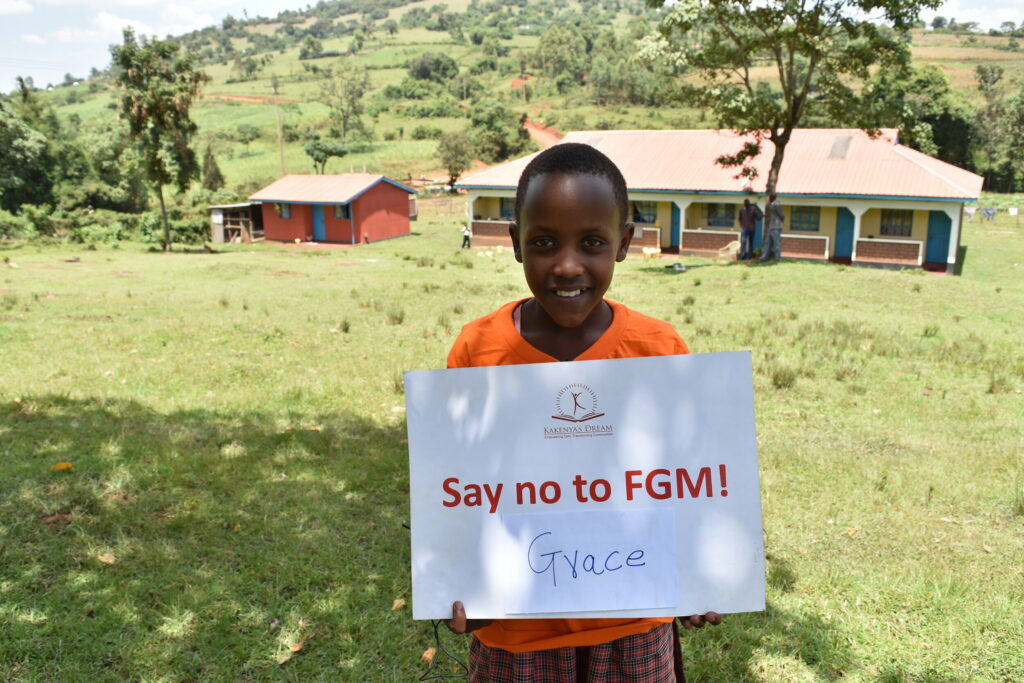Last November, I had the privilege of attending The Nairobi Summit on the International Conference on Population Development (ICPD25) where the Kenyan President Uhuru Kenyatta announced the government’s commitment to end female genital mutilation (FGM) in the country in two years.

This was followed by the launch of the The National Policy For The Eradication of Female Genital Mutilation late last month. This policy was a revision of an earlier National Policy on the Abandonment of Female Genital Mutilation approved by the Cabinet in 2010. The policy outlines very clear objectives and impressive implementation strategies but misses a key component that will actually ensure full implementation of the policy: a community-driven approach.
As someone who has been working on ending FGM in my community for over a decade, I understand how unrealistic it is to attempt to end FGM in just two years. FGM is an age-old traditional practice deeply rooted in societal norms and culture. Ending the practice requires an entire shift in perspective and understanding, something that can require a generation or more to take hold. It is not something that can be solved in a mere few years solely through policy or legislation.
This is made evident by the fact that FGM has been outlawed in Kenya for 10 years and yet 20% of the women and girls in Kenya have still undergone the practice. In communities like mine, nearly 80% of women are still undergoing FGM. We need to realize that there is a gap in policy making and policy implementation in this country.
This disconnect stems from the top-down approach we have used over the years to tackle any challenges facing our country, including the eradication of FGM. How powerful it would have been for President Kenyatta to go to Samburu, the county with the highest FGM rates in Kenya, to launch his commitment to this issue. Or to put together a grassroots task force of individuals who are at the forefront of tackling FGM in their communities and letting them share their experience and expertise on how best we can end FGM. Or calling on men to join and amplify efforts to eradicate FGM given that men still hold the lion’s share of power in most communities in our country.
At Kakenya’s Dream, a community-based organization I created ten years ago to give Maasai girls in southwestern Kenya the opportunity to escape FGM and early marriage and unlock their full potential, we have created a model that has a 100% success rate. A key component of our strategy to empower girls in rural Kenya is to identify all of the barriers that keep them from achieving their goals and reaching their potential, like poverty, hunger, gender inequality, lack of education, and harmful traditional practices like FGM, and then address and remove these barriers as completely as possible. Our primary focus is on education, and it has been the cornerstone of our success.
We began by building the Kakenya Centers for Excellence (KCE I and II), our girls’ boarding schools. We knew that if the girls lived on campus, they would not need to make the dangerous journey to and from school and could be fully protected from FGM and early marriage. Our schools offer a safe place to sleep and nutritious meals to give girls the energy and focus they need to thrive in the classroom. Our girls have access to menstrual hygiene supplies, and they have time to play like children and study after classes are over, instead of spending all evening doing chores as is common for girls in rural communities like ours. We also give them space and guidance to develop their self esteem and life goals. Our girls are taught to be their own advocates. We believe that by giving the girls themselves the information and skills they need to make informed decisions and take control of their futures, they will begin to foment broader social change.

We also work with their parents. Enrollment in our boarding schools is contingent upon parents signing contracts agreeing not to subject their daughters to FGM or early marriage. By engaging parents in their daughters’ education and focusing on changing their perspective, they begin to see that a world of opportunity exists for their daughters beyond traditional roles. Today, we have many fathers and mothers who are now strong advocates for their daughters and view them as leaders and assets to the community. Once believed to be nothing more than their worth in cattle and bride prices, our community now sees its daughters as future doctors, teachers, pilots, engineers, and presidents.
We have also gone a step further to educate boys on the consequences of FGM: the difficulty women have when giving birth, the trauma associated with the practice, and the possibility of death. This is happening to the women they know and love. Once you put the conversation in the context of their sister or their daughter, a real discussion often ensues and change in perspective occurs. These are the conversations that need to be happening across the country and around the world in every community where FGM is practiced.
Furthermore, at Kakenya’s Dream we work closely with the chiefs in our communities. This is necessary, as chiefs are in charge of enforcing the law in the villages. They are supposed to enforce the government’s anti-FGM policy, yet there have been no efforts to educate them on why these protections are in place and they are left with no resources or real capacity to implement the law. This is another example of the top-down approach failing to create substantial change at the community level.
Many fail to recognize that FGM is not a siloed issue. It intersects with health, poverty, social norms and attitudes, education, and human rights. In order to end the practice, we need to get to the root of why FGM occurs and address each of these interconnected challenges. At its core, FGM is a form of control over women’s bodies that is rooted in patriarchal attitudes and beliefs. Therefore, the conversation needs to expand beyond just “let’s stop FGM,” to questioning why we don’t inherently value women and girls in our society the way we do men and boys. We need to ask why our girls aren’t in school, why we don’t value their education like we value boys’ education, why they are getting married off so early, why there’s a rise in teen pregnancy in the country, why death due to domestic violence is so common, why, why, why?
Over the past decade Kakenya’s Dream has been asking these difficult questions and leading these conversations in our community each and every day, and the results speak for themselves. We have educated and empowered over 500 girls at our boarding schools to date, supported 230 boarding school alumni to continue their education at high schools across Kenya and universities around the world, and we have trained 14,000 young people across the region on the issue of FGM and other important topics ranging from child marriage and sexual and reproductive health to self defense. To date, 100% of the girls in our program have avoided FGM and early marriage and have been able to continue their education in an area of the world where 80% of women undergo FGM, 50% are married in childhood, and less than 17% finish primary school. This is the work that needs to be done. It takes time, perseverance, and patience. It will take a generation or more, but it is deeply important for the sake of women and girls around the world.
We have a network of organizations across Kenya like Kakenya’s Dream working to end FGM and the government needs to focus on supporting, replicating, and amplifying their work. Building the capacity of community-based organizations is how we will end FGM in Kenya and it will take a multi-generational commitment, not two years.

